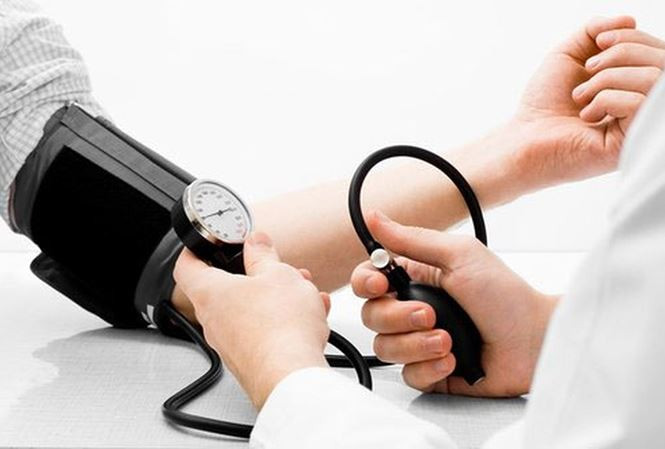Habits that can cause sudden death in people with high blood pressure
Seemingly harmless habits can be "killers" that cause strokes, causing people with high blood pressure to fall into a coma, become critically ill, and even die in many cases.
 |
According to statistics at the emergency department of the 108 Military Central Hospital, up to 62% of stroke emergency cases occurred in the morning from 5am to 8am. Many people were in a coma, in critical condition, and many even died due to arriving at the emergency room too late.
Get out of bed suddenly
Normally, the body's blood pressure is at its lowest at around 3am, then gradually increases and increases rapidly when waking up. Therefore, getting out of bed too quickly in the morning is extremely dangerous, because it increases blood pressure, increases heart rate and increases blood pressure suddenly.
Especially for patients with a history of arteriosclerosis. The reason is that sudden changes in posture cause the blood supply to the brain to not be able to keep up, easily causing fainting, even stroke.
Many people with high blood pressure still maintain the habit of exercising early in the morning, around 5:00 – 5:30 a.m. However, medical experts say that this is the time when there is a large difference in outside temperature compared to the temperature in the bedroom, especially in the cold season.
When the body is suddenly exposed to cold, reactions occur: blood vessels constrict, blood circulation is poor... causing the already high morning blood pressure to increase even faster, thereby increasing the risk of stroke.
Subjectively standing in a windy place when just waking up
In fact, there have been many people with high blood pressure who have had a stroke at home due to being “cold-winded” early in the morning. The reason is that after waking up, patients often have the habit of opening windows and doors to ventilate the house without checking whether the wind is strong outside.
Especially in apartment buildings, tube houses… are easily exposed to wind or during the changing seasons, erratic rain and sunshine, cold wind, early morning dew… there are often strong winds in the morning. The body cannot adapt in time, easily causing dizziness, loss of balance, and sudden increase in blood pressure. In severe cases, the patient may faint or have a stroke on the spot.
Take medication only when blood pressure is high.
Professor Nguyen Lan Viet - President of the Vietnam Cardiology Association said that many people still underestimate high blood pressure. They only take medicine when their blood pressure is high without having the habit of taking medicine and measuring blood pressure every day. To control blood pressure best, you should measure and check twice a day at a certain time to best manage your blood pressure.
In addition, this is a chronic disease so it needs to be monitored regularly, treated properly and completely every day, and treated long-term; the treatment goal is to achieve "target blood pressure" and minimize "cardiovascular risk"; the "target blood pressure" needs to be below 140/90mmHg and even lower if the patient can still tolerate it.
When a person with high blood pressure has achieved normal blood pressure, they still need to take daily treatment to maintain that blood pressure. This is a disease that the patient must use for the rest of their life. What cardiovascular experts are worried about and warn about for high blood pressure patients, especially young patients, is that they do not give up habits that affect blood pressure.
Eat and drink "freely"
When suffering from high blood pressure, in addition to drug treatment, patients need to take active measures to change their lifestyle in the treatment of high blood pressure. That is a reasonable diet, ensuring enough potassium and trace elements: Reduce salt (less than 6g of salt or 1 teaspoon of salt per day), increase green vegetables, fresh fruits, limit foods high in cholesterol and saturated fatty acids.
If the patient is overweight or obese, they must actively lose weight and maintain an ideal weight with a BMI of 18.5 to 23 kg/m2.2. Try to keep your waist circumference below 90cm for men and below 80cm for women.
Limit alcohol consumption
Less than 3 drinks/day (men), less than 2 drinks/day (women) and less than 14 drinks/week (men), less than 9 drinks/week (women): a standard drink is equivalent to 340ml of beer or 140ml of wine, or 40ml of hard liquor. Completely stop smoking cigarettes or tobacco.
Increase physical activity at an appropriate level: exercise, walk or move at a moderate level, regularly about 30-60 minutes a day. Avoid anxiety, nervous tension; need to relax, rest properly. Avoid sudden cold.

